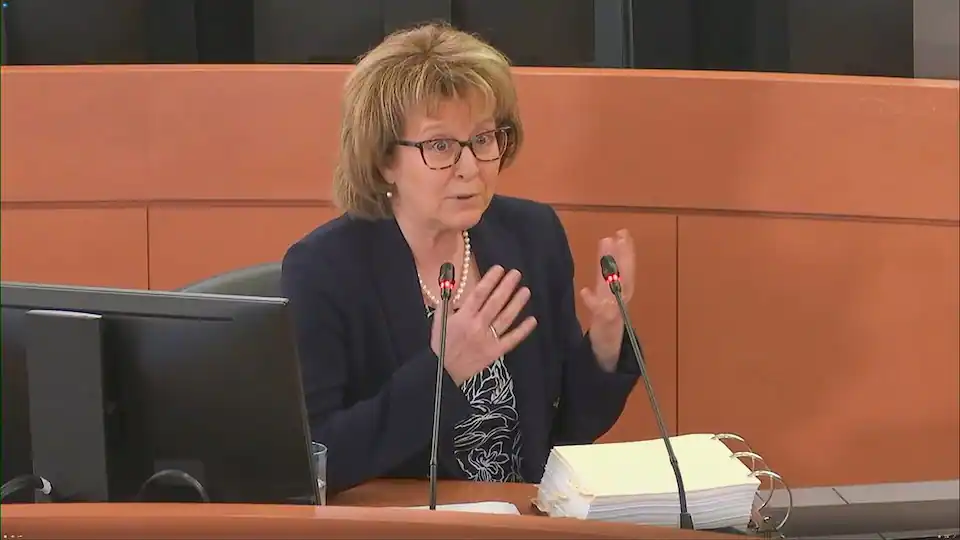By Toby Mann
Copyright abc

Scam centres run by Asian organised crime outfits appear to have set up on Australia’s doorstep, exploiting areas with relaxed regulations to expand their lucrative illegal operations and money laundering fronts.
The United Nations Office on Drugs and Crime (UNODC) has issued an alert about the emergence of triad-linked scam centres in Timor-Leste after a raid at a hotel in its Special Administrative Region of Oecusse-Ambeno in late August.
The scam operations industrialised in South-East Asia during the past five years have been estimated to cost victims about $60 billion each year.
In Cambodia, Myanmar and Laos, mostly Chinese criminals have been running call-centre style scam operations, often from walled compounds in remote areas.
With the help of AI real-time deepfake face-swapping technology, they were becoming more effective at swindling people, often through bogus property investment schemes.
However, as authorities in South-East Asia and Beijing continued to disrupt operations, the scammers have been heading closer to Australia.
“What is currently being observed in Timor-Leste shares stark similarities to what was seen in the early stages of the current scam centre crisis in Mekong countries and the Philippines,” the UN said in a new report.
“Once infiltrated by organised crime these jurisdictions often become hubs for cyber fraud, drug trafficking, and human trafficking.”
There were indications of similar operations being underway in Papua New Guinea and other areas of the Pacific with “weaker regulatory oversight”, the UN said.
Why run scams out of Timor-Leste?
Oecusse-Ambeno was set up as a free trade zone in December 2024.
The organised crime outfits were onto it almost straight away.
Within months, authorities had detected suspicious activity, and by the end of August had uncovered evidence including SIM cards and Starlink devices — which the UN said was a “key indicator of online scam activity”.
Financial crime expert Anton Moiseienko from the ANU said areas like Oecusse-Ambeno were attractive to organised crime groups due to their looser regulations.
They’re created to attract business, investment and trade.
That’s also a lure for those looking to cash in illegally.
“This is because they frequently involve lesser regulatory oversight than the rest of the country, but also a greater amount of commercial activity,” Dr Moiseienko told the ABC.
“This makes it easier for overseas criminal groups to establish a foothold in the jurisdiction while concealing their criminal operations.”
In a press release announcing plans to drive investment and modernisation, Oecusse-Ambeno positioned itself “as Timor-Leste’s premier hub for digital innovation, sustainable tourism, and green energy”.
“We are executing a bold, integrated road map to reshape Timor-Leste’s economic future,” it said.
This move probably helped to put it on the radar of the scam operators, Dr Moiseienko said.
Because scam centres can be run from anywhere, organised crime was constantly looking for areas like this that can become “safe havens” for their illegal operations, he said.
He said even though authorities in Oecusse-Ambeno had raided one operation, scam activity would not necessarily decrease.
“Will we see convictions and, if so, will they target anyone beyond low-level foot soldiers?”
“Even if they do, the real question is whether the law enforcement pressure in Timor-Leste is greater or lesser than elsewhere.”
The ABC has contacted the Timor-Leste government for comment.
During the raid, authorities detained about 30 foreigners, who had come from Indonesia, Malaysia and China and didn’t have permission to work.
The UN said it was unclear if they had been trafficked.
Some of them had university qualifications, and the UN said that pointed to a “growing professionalisation” of the operations.
Notorious crime boss ‘Broken Tooth’ involved
As well as uncovering the scam, the UNODC said a company focused on offshore online gambling owned by a Cambodian businessman — with links to Wan Kuok Koi, a leader of the 14K triad criminal gang — was active in Oecusse-Ambeno.
Wan Kuok Koi is a crime boss known as “Broken Tooth”.
He has been sanctioned by the US, but his business associate has ties with one of the owners of a new casino in Brisbane.
The UNODC said the network in Oecusse-Ambeno was involved with Broken Tooth “whose gambling and junket ventures have long intersected with online fraud and illicit finance across South-East Asia”.
It has links to “money laundering for scam operations and a corporate entity repeatedly implicated in online gambling and scam infrastructure”, the UNODC said.
“The casino expanded its lottery-branded operations abroad, including into Timor-Leste, where the same tactics are now being used to exploit [Oecusse-Ambeno],” it said.
“Part of this infrastructure includes an autonomous system hosting suspicious websites and applications that present themselves as legitimate lottery services but in practice facilitate fraud and illicit gambling.”
The triad-linked operators have pulled out all the stops to keep their real money earners hidden.
“Criminal groups are exploiting shell companies, professional services, and multiple passports to evade detection, while embedding illicit operations within legitimate investment frameworks,” the UNODC said.
What to do if caught in a scam
Data shows the number of scams hit a record high in 2023, with Australians being duped out of almost $3 billion.
That dropped to about $2 billion last year.
“Australia continues to be a significant target for cybercriminals as it is a relatively prosperous country, and Australians tend to be very trusting,” the Australian Federal Police (AFP) told the ABC.
It said it works with overseas authorities to target “high-level transnational organised crime syndicates based offshore who conduct scams against Australians”.
The AFP has warned people to act quickly if they think they have been caught up in one.
An AFP spokesperson told the ABC suspected scams should be reported to police via a national online portal, and to the ACCC’s ScamWatch.
If money has been transferred or odd account activity has been noticed, people should contact their financial institutions, the AFP spokesperson said.



